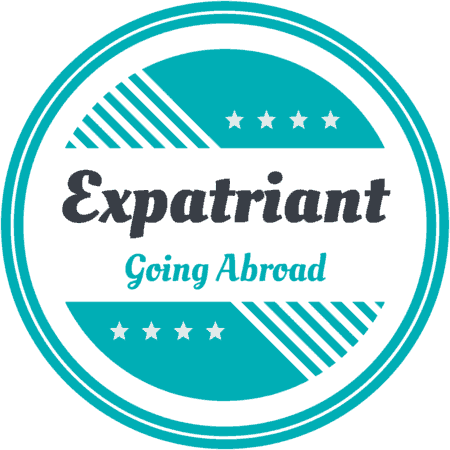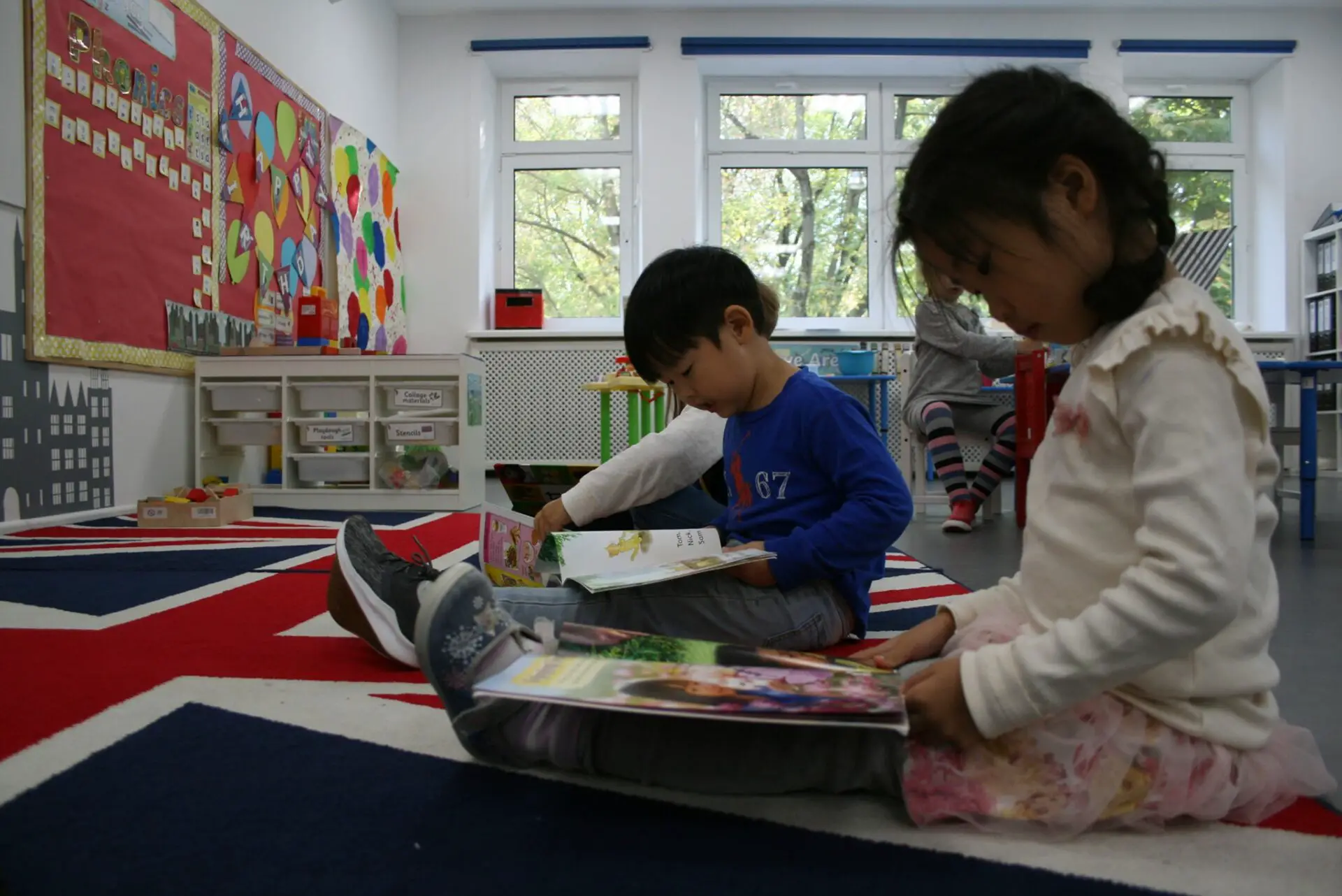Contents
The following is a guest post about choosing a preschool in Russia from Holly Roberts, the founder, and headteacher of Britannia School in Moscow, Russia. Holly is a British early years educator with 15 years of professional experience and has been in Moscow since 2009. In 2009, Holly was invited to join and launch the early years’ department at the International School of Moscow. Since then, she has successfully launched an early years department (nursery schools, preschool, or kindergartens) at the Cambridge International School at the time it was called Atlantic International School and started her own school, the Britannia School in Moscow.
In this article, she will tell you the most important things to investigate when choosing a kindergarten, nursery school, or preschool in Russia.
When looking for a kindergarten, nursery school, or preschool in Russia, foreign parents may be surprised to discover that organizations offer what seems to be the same services, but in reality, their offerings are quite different if one knows what to look for.
Below is a list of my top 11 things to check before choosing a preschool in Russia for your child in Russia.
Educational License
Most parents who are looking to enroll their children in a nursery or kindergarten in Russia may be bewildered by the variety of options available and the different types of organizations that offer them. The parents may not be aware of the difference between a “detskiy sad,” “detskiy center,” or “detskiy club”. However, there are significant differences.
In order to operate as a detskiy sad or a duly licensed preschool educational establishment in Russia, the organization needs to obtain a license for preschool educational services from the local Department of Education (“Лицензия на осуществление образовательной деятельности. Общее образование. Уровень образования – дошкольное образование”).
All of the municipal kindergartens in Russia have such licenses. This license signifies that the licensee has successfully passed inspections by several Russian government agencies, including Rospotrebnadzor (the Russian sanitary inspectorate). MChS (The department responsible for fire safety and other emergency situations) and the Department of Education.
These agencies issue their certificates of compliance (“Заключение”) with all applicable laws and regulations to a detskiy sad. The same agencies also continuously monitor and inspect all licensed educational establishments. However, if an establishment you are considering calls itself “detskiy center” or “detskiy club,” then chances are they don’t have this license.
Therefore, they are not subject to the same level of regulatory oversight. Education is an economic activity subject to mandatory licensing in Russia, so always ask to see all the licenses from the educational establishment where you are considering enrolling your child. License information is also in the public domain. You can always check that you were not given a photoshopped license by looking up the license number on the Department of Education website (in Russian).
Medical Licence for the Nurses Office
Fully licensed kindergartens in Russia should have their own medical office with a medical license issued by the Department of Healthcare just like any private medical clinic would. This office should be staffed with a nurse who has the correct medical education with a valid pediatric certificate. The operation of the medical office and the nurse should be supervised by a pediatrician with the required level of education, professional experience, and certificates.
Together, the nurse and pediatrician should be overseeing all medical and sanitary procedures at any preschool in Russia and ensuring that the children do not exhibit any worrying symptoms upon arrival or during the day. The nurse is responsible for isolating a child should they develop any symptoms during the day. The nurse is also responsible for collecting, reviewing, maintaining, and updating the mandatory medical file Form 26U and various other documents for each student.
The majority of educational establishments only have first aid staff on site. Therefore, if an accident were to happen, there are no proper staff, equipment, or procedures in place. Also without a proper certified pediatric nurse on staff at a preschool in Russia, there is no one responsible for ensuring the cleanliness and the general wellbeing of students and staff.
The nurse is responsible for checking and maintaining medical books (“медицинская книжка”) that all staff members working with children should have. An alternative preschool establishment can contract out the medical office services to a properly licensed healthcare provider. And yes, non-medical staff should also be first aid trained and hold unexpired first aid certificates.
You may want to ask your future educational services provider for their medical office license or a copy of their contract with a licensed healthcare provider.
Inspection Reports
Properly licensed kindergartens in Russia have to conduct tests, including those for food quality, swabs for harmful bacteria in the building, air, water, lighting quality, ventilation systems, proper furniture sizing, the safety of toys, and resources used by the children on-premises and overall observance of other sanitary guidelines annually. These tests may be conducted by Rospotrebnadzor or other licensed entities authorized to provide such services.
The written results of these tests and inspections are provided to all inspected preschools and are called “меры производственного контроля.” Any licensed establishment should be able to give you the most recent copy of their annual reports.
This will give you an overall view of the real sanitary conditions at the establishment. In addition, once every few years, Rospotrebnadzor conducts comprehensive site inspections of all educational establishments and issues reports on its findings. You may want to ask for a copy of that one as well.
Security at Preschools in Russia
Often a parent is told that their child is secure just because the detskiy center has CCTV cameras everywhere. Great, but what about the government prescribed anti-terror measures? Does this establishment have a security passport in place cleared by Rosgvardia, the Federal Security Service (FSB), and MChS? Providing complete security for an educational establishment is quite complex. In order to be secure, kindergartens should have their building properly categorized for security purposes and hold a valid security passport.
To receive this passport, an educational establishment should have a fire alarm system, security cameras, a security alarm system with its signal fed to the police, and panic buttons installed. The specifications of all these systems have to be checked and approved by relevant government agencies. Depending on the building category, a guard from a properly licensed private security firm may have to be stationed on-premises.
Contingency plans for dealing with an act of terror should be developed by each kindergarten or preschool in Russia. In order to receive this security passport, the preschool needs to comply with all of the regulatory requirements. Every educational establishment should also have a road safety passport properly signed off by the traffic police.
What other important determinants of child security and safety should be included? Typically, there should be medical arrangements, staff vetting, training, and supervision processes implemented at an educational establishment (more on this below).
Fire Safety at Preschools in Russia
Every educational establishment should have a fire alarm system installed with its signal automatically provided to the fire brigade (MChS). Buildings that are fully compliant with fire regulations and higher than two stories should have fire escapes. Every classroom should have at least two evacuation routes. There should also be fire evacuation plans on display throughout the building with a person responsible for fire safety and for liaising with the fire department identified in each room.
Children should be taught what to do in case of a fire and take part in regular fire drills. I have seen a detskiy center in a fancy looking three-story building in Moscow with no fire escapes. This seems like a big health and safety concern. Always inquire about fire safety measures in place at the educational establishment you are considering.
Teachers
There are quite a few things parents should look for regarding staff members at an educational establishment. The first thing is to check whether the staff is qualified to work with children. Unfortunately, some preschools in Russia that provide lessons in English employ expat teachers (“native speakers”) who may only have some certificate to teach English such as CELTA, TEFL (CELTA and TEFL certificates certify that you can teach English to adults, not to children), or a certificate issued by a school itself, but no other relevant qualifications for early years teacher training.
Some of these certificates can be obtained by taking a one-month course or even online. However, it takes several years of studies to qualify as a Russian kindergarten teacher. Holding one of these certificates only means that its holder can teach English lessons, but not curricula or other subjects. In order to work with children, teachers should have the correct pedagogical university degree, training, and experience. Obviously, the costs to employ native speakers with CELTA, TEFL, etc. certificates, but without proper early years teaching qualifications, are lower compared with fully qualified native English speaking teachers.
The easiest way to find out how qualified these teachers are is to check if the native speaking preschool staff members would be allowed to teach at a preschool in their home country. We also recommend checking that the staff members at the educational establishment you are considering were vetted properly, which means that they should have a proper police background check (from Russia or their home country depending on where they resided prior to starting their employment at this establishment), and real references from previous employers.
If the teachers have been hired properly with a contract they should have a medical book. There are certain medical tests one has to do if you work with children. These are recorded and regularly updated in the mandatory medical book (“медицинская книжка” in Russian). Often teachers are hired without a proper contract, and, therefore, they don’t have a medical book. This is a red flag.
Headteacher
It is also important to check the qualifications and prior work experience of whoever is supervising the teaching staff. This position is usually called one of the following: headteacher, academic director, “заведующая,” or “методист.” Often an educational establishment declares that they implement some international curriculum (for example, EYFS) with the expatriate teachers educating children, but these teachers report to and are monitored by somebody who has neither been properly trained in such curriculum implementation nor ever worked in the country where this curriculum originates.
Educational Program
If a kindergarten in Russia has a license for preschool education, it means that their educational program was approved by the Department of Education. Often preschools and kindergartens in Russia use as a “why us” point that they developed their own original curriculum (“авторская методика или авторская программа” in Russian).
In this case, you should ask them who wrote the program, what that person’s special qualifications are, what are the proven advantages of this original program over other established ones, is it based on any research, and what are the documented educational and behavioral outcomes? What experience do the teaching staff and their headteacher have in implementing this program?
Meals at Preschools in Russia
Often educational establishments state that they have some special dietary menu, as one of their selling points. If a kindergarten has a license, their menus have to be compliant with the rules for children’s nutrition. There are guidelines for the preparation of two week healthy and properly nutritious menus for preschoolers. These universally applicable rules state the optimal nutrient composition of children’s meals, serving sizes, and meal frequency.
The only exception to the rules is made for the children that have a doctor’s certificate that states that such a child has certain allergies. Then, to the extent possible, a special menu for such a child is prepared.
Classroom Capacity
Ask any kindergarten in Russia about the maximum number of students legally allowed in the classroom. This number is stated in the approval document by the sanitary inspectorate issued as part of the licensing process (“Акт санитарно-эпидемиологической экспертизы видов деятельности, работ, услуг”). This number is broadly determined by the classroom size. Your educational provider should not have a problem with showing it to you.
Unfortunately, many establishments place more students in the classroom than it is legally rated for, which can be dangerous.
The Russian sanitary inspectorate recently issued additional recommendations on extra measures aimed at preventing the coronavirus infection for educational establishments. Ask your preschool what measures have they implemented especially in light of the recent COVID-19 outbreak in Russia.
These are the most important things for the parents to check before enrolling their child at a preschool establishment. In Russia, due diligence is very important. It is easy to find a preschool in Russia for your children, but many times you cannot rely on compliance. If you are looking for high-quality education in Russia, you can find it, but be sure to ask the right questions. If you encounter hostility towards the questions we encourage you to ask, stay away from that school.
For more information on schools in Russia, check out our guide to Russian schools for expats.



Many thanks for this, Ms Roberts. Could you kindly provide a link to The Russian sanitary inspectorate’s additional recommendations on extra measures aimed at preventing the coronavirus infection for educational establishments? I am not a native speaker so I cannot find them, but I can use google to translate the original document. Many thanks in advance